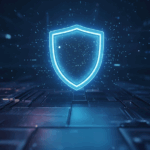India’s digital transformation has been skyrocketing over the past few years with an unprecedented pace. From online banking to e-governance platforms and digital health services, technology is deeply embedded in everyday life. But with this surge in connectivity comes a critical challenge: cybersecurity.
The rise of artificial intelligence (AI) has brought both opportunities and risks to India’s cyber ecosystem. On one hand, AI enhances threat detection and automates defense. On the other, cybercriminals are also leveraging AI to launch sophisticated attacks.
As India strengthens its digital infrastructure, adapting cybersecurity strategies to the AI era has become a national priority, with support from the best cyber security company in India.
The Growing Cyber Threat Landscape
India has emerged as one of the top targets for cyberattacks. With over 820 million internet users and a fast-growing digital economy, the country’s vast online footprint makes it highly vulnerable.
Ransomware, phishing, data breaches, and identity theft are becoming alarmingly common. The increasing use of cloud services, IoT devices, and mobile applications expands the attack surface further.
AI has complicated the landscape. Cybercriminals are deploying AI-driven malware, deepfakes, and automated phishing attacks that are harder to detect using traditional defenses, making the role of the best cyber security company in India more crucial than ever.”
For example, AI-generated spear-phishing emails mimic human writing patterns so well that even experienced users struggle to identify them.
AI as a Double-Edged Sword
AI is reshaping cybersecurity in two ways.
- AI for Defense: Security teams use AI-powered tools for real-time monitoring, anomaly detection, and automated responses. Machine learning algorithms can identify unusual activity, block suspicious logins, and even predict potential vulnerabilities before they are exploited. This shift makes defenses more proactive than reactive.
- AI for Offense: Hackers also exploit AI to launch quicker, more targeted attacks. From creating fake voice recordings to developing malware that adapts itself, AI has become a weapon in the hands of cybercriminals. The challenge is staying one step ahead by building equally advanced countermeasures.
Regulatory Push and National Strategy
Recognizing the risks, the Indian government has introduced several measures to strengthen cybersecurity. The Digital Personal Data Protection Act, 2023 (DPDP Act) is a milestone in protecting citizens’ data, setting strict rules for data collection, storage, and usage. In addition, the Indian Computer Emergency Response Team (CERT-In) has made it mandatory for companies to report cyber incidents promptly.
India is also investing in AI-driven cyber defense strategies as part of its broader vision for a secure digital future. Collaboration between public and private sectors, along with guidance from the top cyber security company in India, is vital to build resilient systems capable of withstanding next-generation cyber threats.”
The Corporate Perspective
For Indian businesses, cybersecurity is no longer just a technical issue, it’s a boardroom priority. With remote work, cloud adoption, and digital-first models, enterprises face mounting risks of data breaches and reputational damage. A single attack can disrupt operations, erode customer trust, and result in huge financial losses.
Companies are increasingly adopting AI-driven cybersecurity solutions such as:
- Behavioral analytics to detect insider threats.
- Automated incident response for faster containment.
- Predictive threat intelligence to prevent breaches before they happen.
Startups and mid-sized businesses, often lacking large IT budgets, are especially vulnerable. Affordable AI-powered security solutions are becoming critical for these organizations to safeguard themselves.
Recommended reading: Cybersecurity Risks in IoT Devices: How to Stay Protected
Building Cyber Resilience
Adapting to the AI era requires more than technology, it demands a cultural shift. Businesses and government agencies must:
- Invest in AI-powered defense tools that evolve alongside threats.
- Train employees in cyber hygiene to reduce risks of phishing and social engineering.
- Encourage collaboration between industries, academia, and policymakers for knowledge sharing.
- Develop ethical frameworks to ensure AI is used responsibly in both public and private sectors.
Conclusion
As India embraces the opportunities of AI, it must also confront the cyber risks it brings. The balance between innovation and security is delicate but essential. By leveraging AI defensively, strengthening regulations, and fostering collaboration, India can build a safer digital ecosystem. For businesses, this moment is a call to act, cybersecurity is no longer optional but a necessity.
Companies like Grizon Tech are playing a vital role in this transformation. By offering cutting-edge AI-driven security solutions, Grizon Tech empowers organizations to stay resilient against evolving threats. In the age of AI, ensuring cybersecurity isn’t just about protecting data, it’s about securing the future of India’s digital economy.






